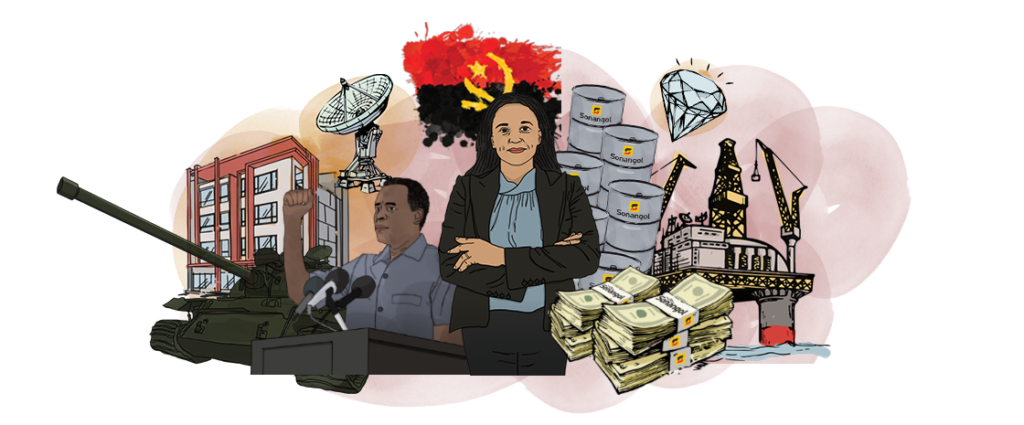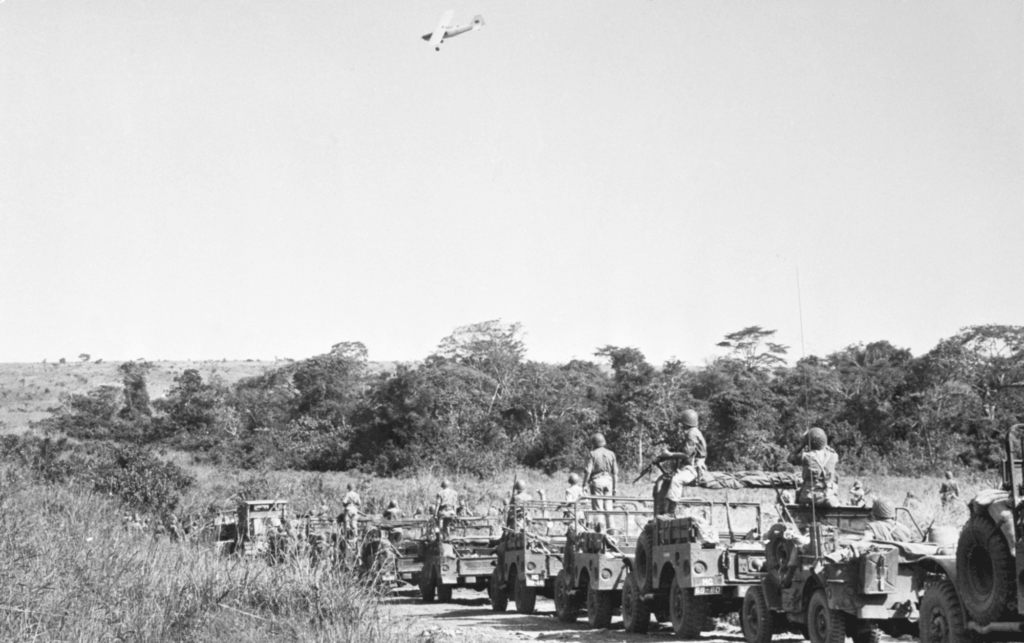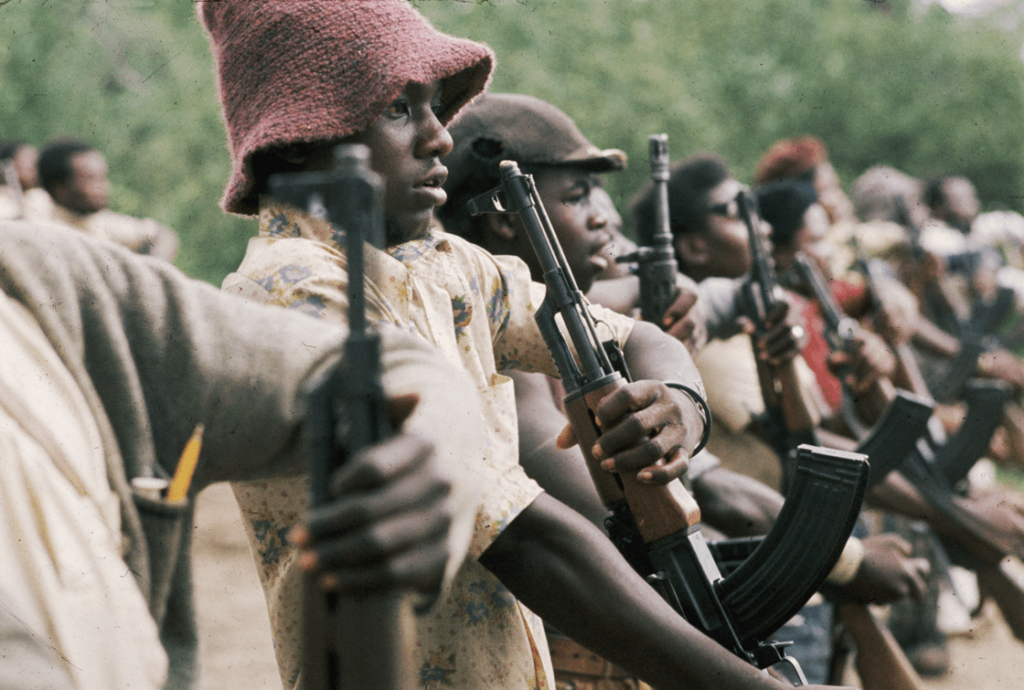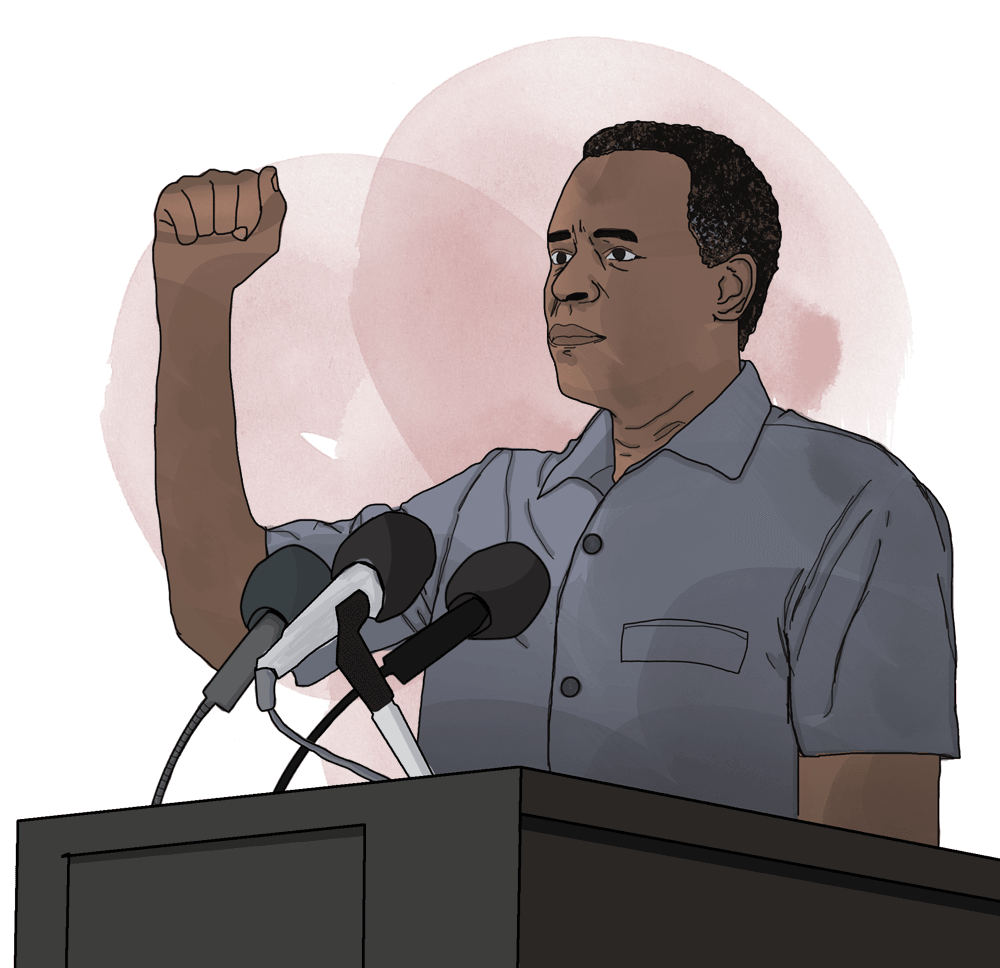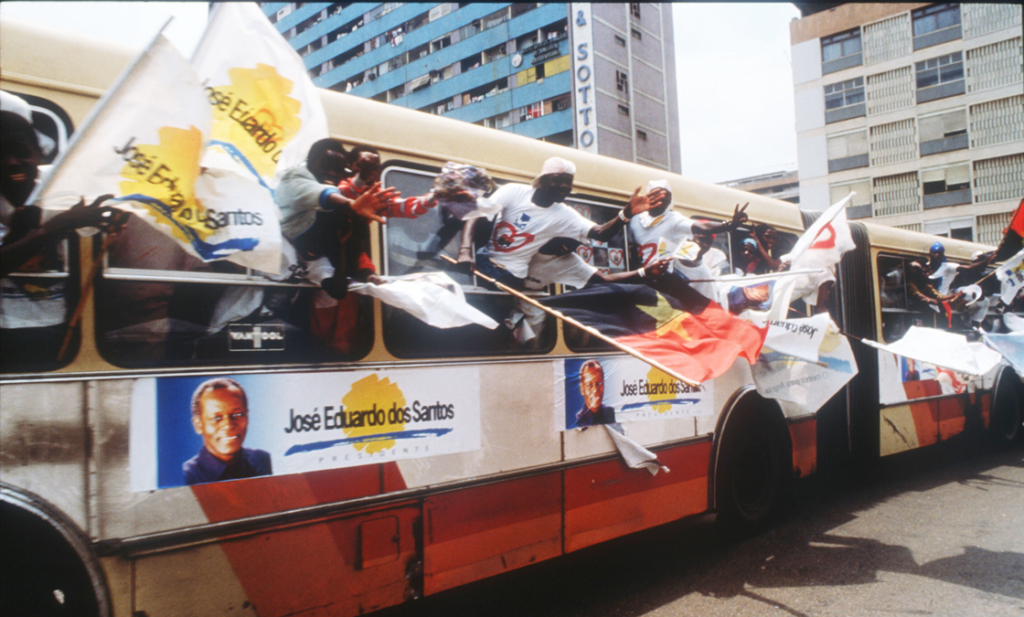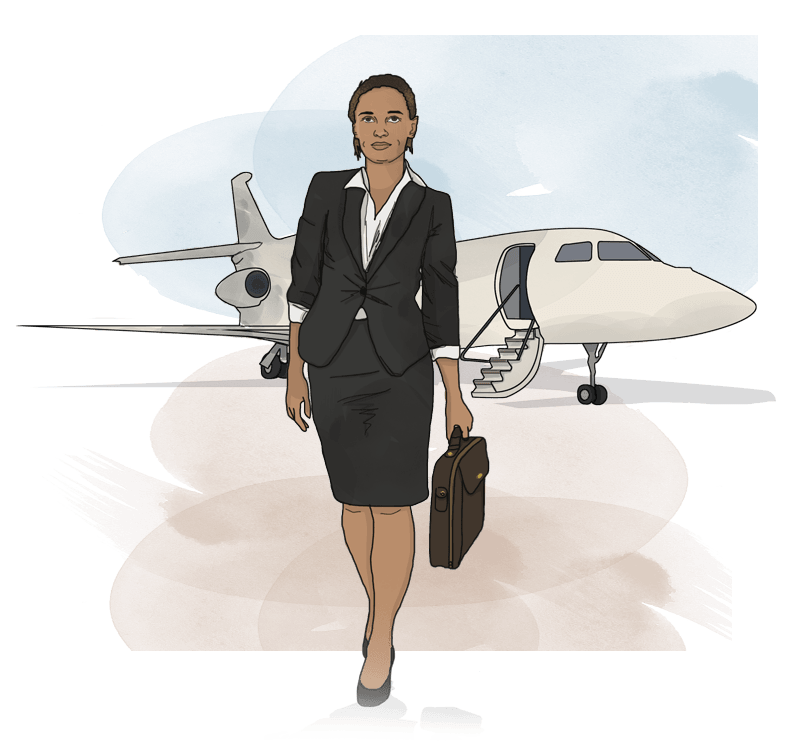From Colonization to Kleptocracy: A History of Angola and Isabel dos Santos
EXPOSURES - EXPOSÉS, AFRICA, JUSTICE, CAPITALISM, ECONOMICS, 10 Feb 2020
The International Consortium of Investigative Journalists – TRANSCEND Media Service
5 Feb 2020 – Our visual explainer shows you how Africa’s richest woman rose amid a country divided by war and rich in natural resources.
Invasion to Independence (1575 – 1976)
1575: Portuguese Colonists Settle Luanda
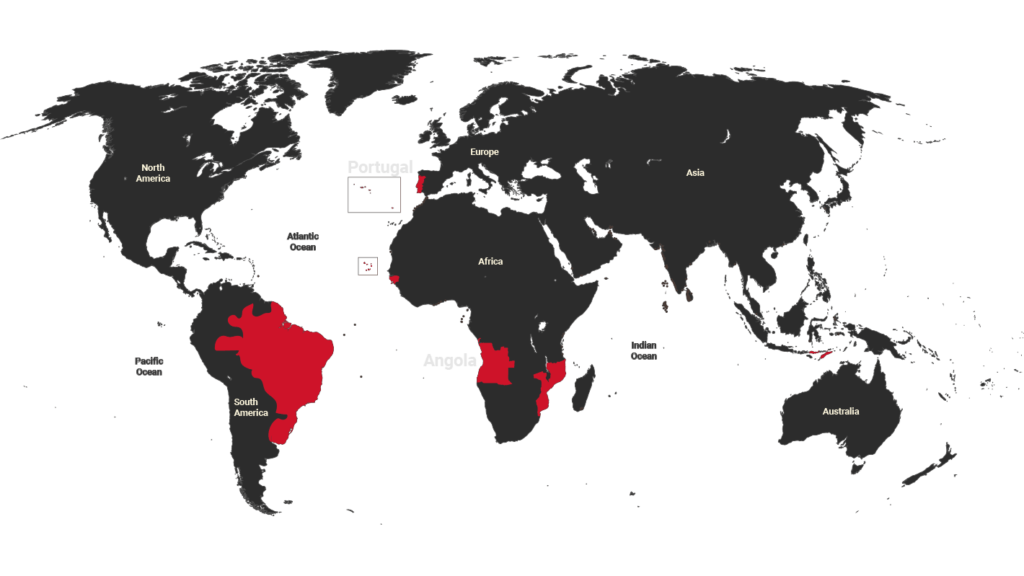 With a natural harbor providing access to the Atlantic, Luanda becomes a major hub of the slave trade. Over three centuries, Portuguese and other slave traders ship nearly 6 million people from West and Central Africa to the Americas, particularly Brazil.
With a natural harbor providing access to the Atlantic, Luanda becomes a major hub of the slave trade. Over three centuries, Portuguese and other slave traders ship nearly 6 million people from West and Central Africa to the Americas, particularly Brazil.
March 1961: Anti-Colonial Uprising
Protests by coffee workers meet with a fierce crackdown. A 14-year insurrection begins. Portuguese military bombings and village raids kill thousands of civilians.
January 1975: Angola Declares Independence
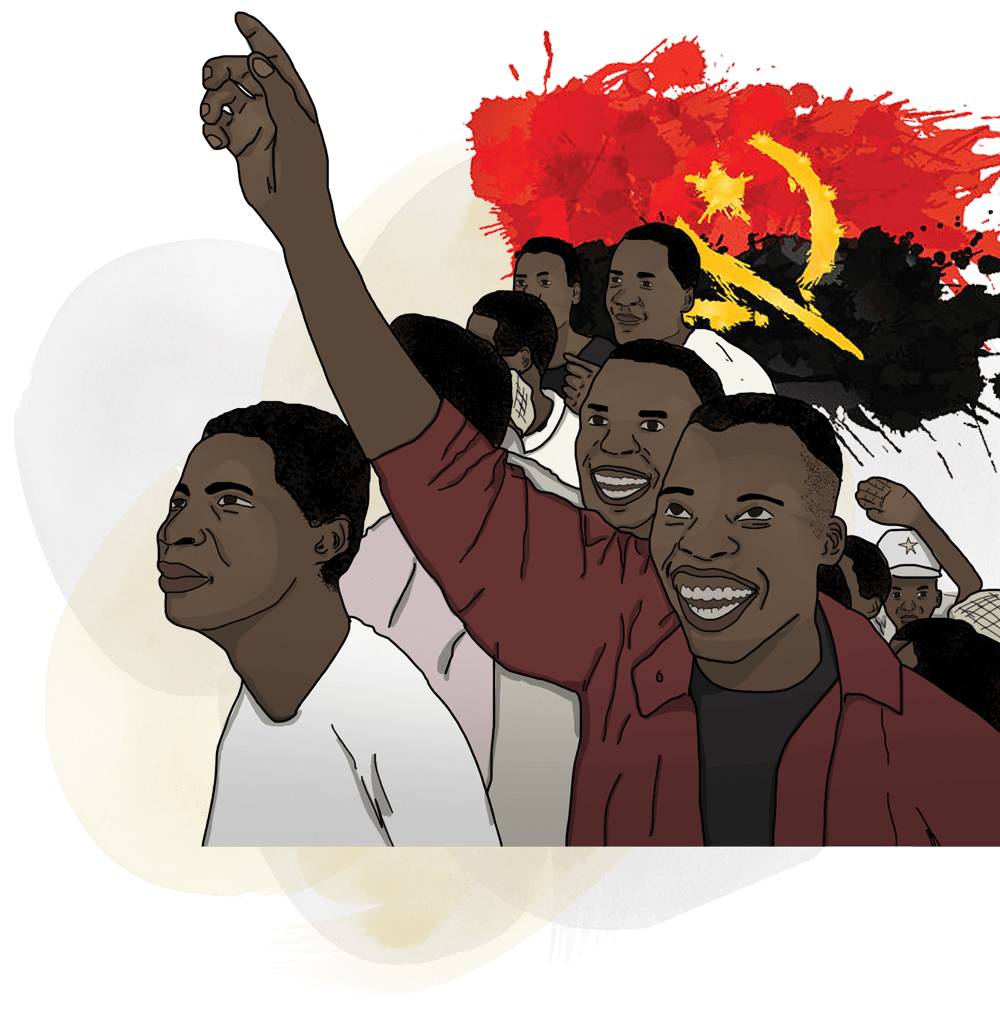 The fall of an authoritarian regime in Portugal fuels opposition to colonialism, paving the way for Angolan independence.
The fall of an authoritarian regime in Portugal fuels opposition to colonialism, paving the way for Angolan independence.
November 1975: Angola’s First President
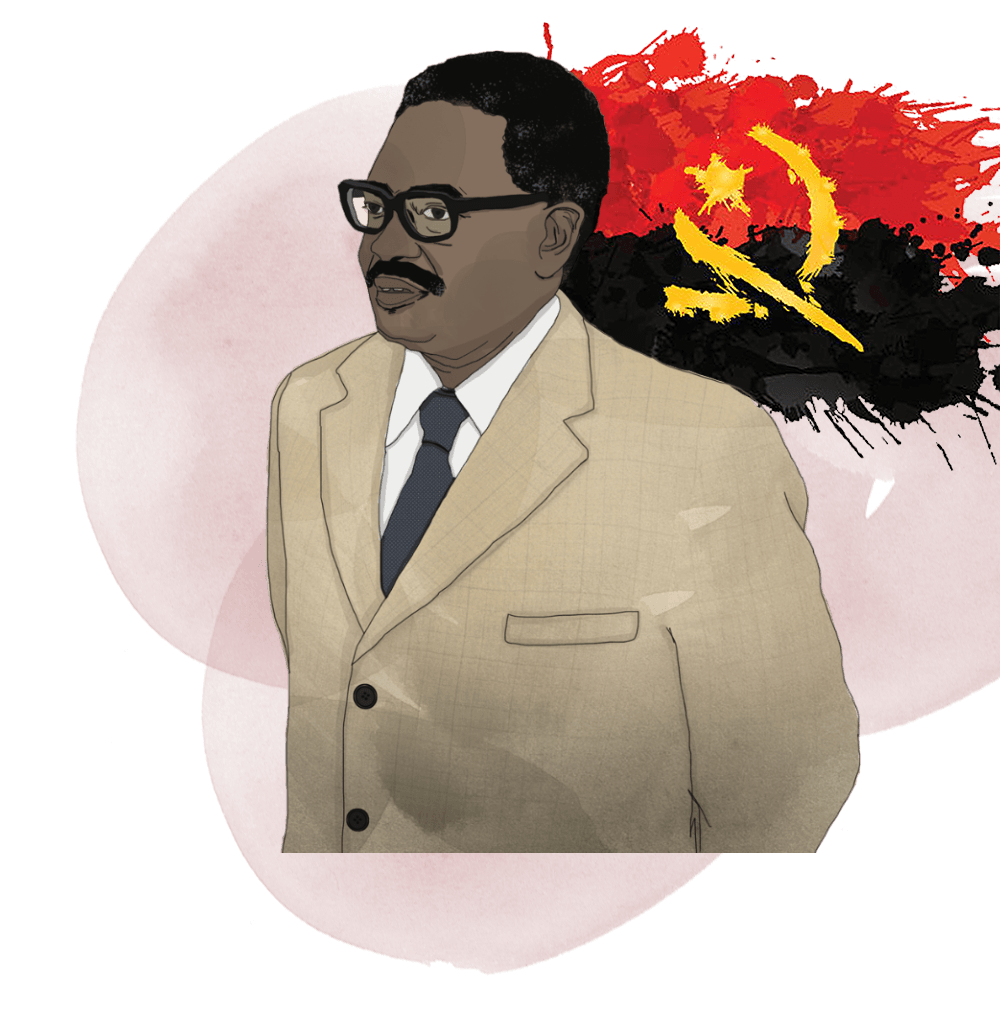 António Agostinho Neto, leader of the Movimento Popular de Libertação de Angola (MPLA), becomes the country’s first president after the MPLA takes control of Luanda and secures the country’s coastal oilfields. Deep divisions remain between the MPLA and other factions that fought for independence.
António Agostinho Neto, leader of the Movimento Popular de Libertação de Angola (MPLA), becomes the country’s first president after the MPLA takes control of Luanda and secures the country’s coastal oilfields. Deep divisions remain between the MPLA and other factions that fought for independence.
November 1975: ‘The Worst War in the World’
A brutal civil conflict consumes Angola. The Soviet Union backs the MPLA; the United States backs the opposition UNITA movement. A United Nations special envoy will later describe it as “the worst war in the world.”
June 1976: Sonangol Rises
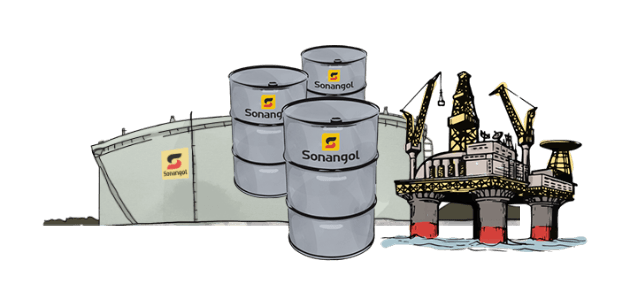 The large oil deposits in Angolan coastal waters promise to transform the economy, but the war is taking a toll. Hundreds of thousands of Portuguese settlers, as much as 90% of the settler population, flee Angola, ravaging the broader economy. Western oil companies manage to pump about 100,000 barrels a day, well below earlier levels. The Luanda government is determined to keep oil operations running — and the cash flowing — even as war tears the country apart.
The large oil deposits in Angolan coastal waters promise to transform the economy, but the war is taking a toll. Hundreds of thousands of Portuguese settlers, as much as 90% of the settler population, flee Angola, ravaging the broader economy. Western oil companies manage to pump about 100,000 barrels a day, well below earlier levels. The Luanda government is determined to keep oil operations running — and the cash flowing — even as war tears the country apart.
To secure technological help from the West, the government creates Sonangol, a state-controlled company, and later guarantees it a 51% share of oil production in Angola. With authority to negotiate exploration and production deals with U.S., French and other multinational oil companies, Sonangol quickly becomes the state’s primary revenue source, generating billions of dollars of badly needed foreign currency to fund the war effort. The money also enriches Angolan leaders, who use self-dealing contracts to build personal fortunes and pay off internal opponents.
Sonangol will go on to play a dominant role in the Angolan economy, acquiring stakes in banks, global real estate, health, education, transport and telecommunications companies, and in joint-ventures in Australia, China, the U.S. and elsewhere.
Today, crude oil still accounts for more than 90% of Angola’s exports. The economy’s fortunes ebb and flow with oil prices.
Dos Santos In Power (1979 – 2000)
September 1979: José Eduardo dos Santos Assumes Power
Neto dies of cancer and is succeeded by José Eduardo dos Santos, 37, an MPLA veteran of the war of independence. His family and allies will dominate Angolan political life for most of the next four decades.
September 1992: Angola’s First Election
After a 15-month cease-fire, UNITA leader Jonas Savimbi agrees to take part in an election. The MPLA wins, but Savimbi says the vote was rigged and resumes the war.
1997: Enter the President’s Daughter
Isabel dos Santos, 24, uses what she later says are her savings to invest in the struggling Miami Beach Bar, situated in what will become a plush district of the Angolan capital. The venue becomes a playground for the “Futungo,” a small clique of influential Angolan families.
Born in 1973 in Azerbaijan, Isabel is the only child of José Eduardo dos Santos, then an exiled guerrilla fighter, and Tatiana Kukanova, a Russian, whom the future Angolan president met while studying petroleum engineering at the Azerbaijan Oil Academy in Baku.
The marriage didn’t last, and Isabel was raised by her mother, spending some time in Luanda and her teen and young-adult years in London, where she attended the exclusive St. Paul’s girls’ school.
After graduating in 1994 with a degree in electrical engineering and business management from King’s College London, she worked for Coopers & Lybrand, an accounting firm, and then won a job as a project manager on a major government-funded sanitation project in Luanda.
A Gilded Age … For a Few (2000 – 2004)
TO CONTINUE READING THE REPORT Go to Original – icij.org
Tags: Africa, Angola, Capitalism, Corruption, Economics, Elites, Exposé, Finance, Luanda Leaks, Whistleblowing
DISCLAIMER: The statements, views and opinions expressed in pieces republished here are solely those of the authors and do not necessarily represent those of TMS. In accordance with title 17 U.S.C. section 107, this material is distributed without profit to those who have expressed a prior interest in receiving the included information for research and educational purposes. TMS has no affiliation whatsoever with the originator of this article nor is TMS endorsed or sponsored by the originator. “GO TO ORIGINAL” links are provided as a convenience to our readers and allow for verification of authenticity. However, as originating pages are often updated by their originating host sites, the versions posted may not match the versions our readers view when clicking the “GO TO ORIGINAL” links. This site contains copyrighted material the use of which has not always been specifically authorized by the copyright owner. We are making such material available in our efforts to advance understanding of environmental, political, human rights, economic, democracy, scientific, and social justice issues, etc. We believe this constitutes a ‘fair use’ of any such copyrighted material as provided for in section 107 of the US Copyright Law. In accordance with Title 17 U.S.C. Section 107, the material on this site is distributed without profit to those who have expressed a prior interest in receiving the included information for research and educational purposes. For more information go to: http://www.law.cornell.edu/uscode/17/107.shtml. If you wish to use copyrighted material from this site for purposes of your own that go beyond ‘fair use’, you must obtain permission from the copyright owner.
Read more
Click here to go to the current weekly digest or pick another article:
EXPOSURES - EXPOSÉS:
- WikiLeaks Has Just Put All Its Files Online--It’s All There!
- How the Opiate Conspiracy Widened
- Inside Israel’s Torture, Rape, and Dehumanization Centers [Sickening]
AFRICA:
- How the International Monetary Fund Underdevelops Africa
- How Trump’s Embrace of Afrikaner “Refugees” Became a Joke in South Africa
- New Study Reveals Changing Attitudes to Female Genital Mutilation among Sudanese Communities in Egypt
JUSTICE:
- Report: 60,000 Political Prisoners Held without Trial in Egypt
- Gaza Tribunal Project: Opening Remarks
- The Sarajevo Declaration of the Gaza Tribunal (28 May 2025)
CAPITALISM:
- January 20, 2025
- The Dismal Pseudo-Science
- Trillions in Dirty Money: How Hidden Loopholes Fuel Corruption and Inequality
ECONOMICS:
- From Private Profit to Public Power: World’s Richest 1% Increased Wealth by $33.9 Trillion Since 2015
- Eradicating Poverty beyond Growth: Reforming the Global Financial Architecture for Ecological and Social Justice
- Two Hundred Years Ago, France Strangled the Haitian Revolution with an Inhumane Debt By Vijay Prashad
